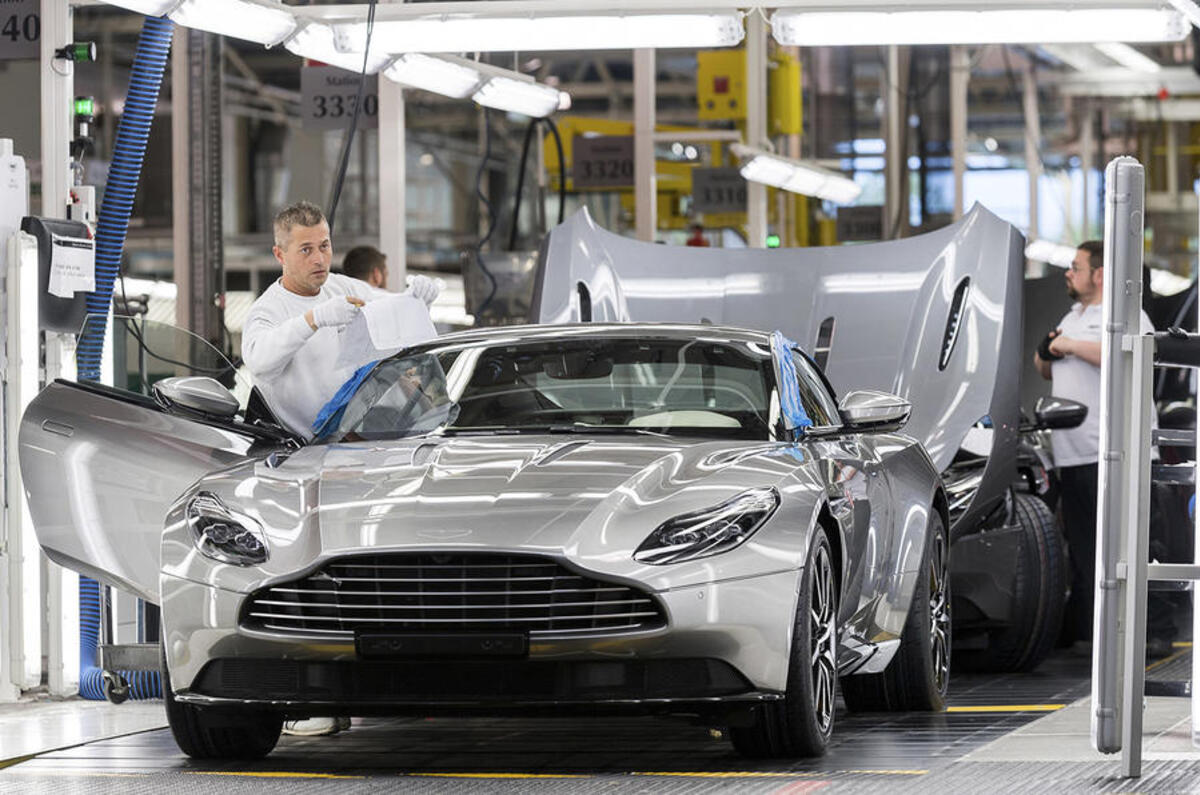UK car manufacturing was also given a boost in April as output rose by 5.2% from April 2017 to 127,952 units, putting the brakes on a production downturn that has been in motion all year.
Last month, UK car plants received a 7.3% increase in demand from the domestic market, while overseas demand was up by 4.7%.
In total, 103,662 cars were built for overseas markets in April, meaning exports accounted for 81% of overall demand — that's a 0.4% improvement on the same period last year.
But despite the turnaround in performance from March's 13.3% production decline, the UK’s year-to-date performance remains below that of 2017, falling by 3.9%.
This is largely due to dwindling demand from the home market — which, at 113,650 units is 10.3% down on the same period last year. However, exports are also 2.2% lower year on year at 454,728, representing 80% of overall demand.
UK engine building, on the other hand, reached new heights in April, with 1 million engines produced in the UK across the first four months of the year - an unprecedented feat for Britain's automotive manufacturing industry.
1,013,456 engines left UK factories until the end of April; a 7.5% increase over 2017 equating to 71,128 engines. 61.7% of this 1.01 million were exported, which is an increase in the percentage exported of 15.9%. A particularly buoyant April for engine exports - a 30.5% increase over April 2017 - helped bolster the export figures across the year so far.
Parallel to the stagnation in car manufacturing, engine manufacturing for the home market fell by 3.6% across the year until the end of April compared with the same period last year, equating to 14,554 fewer engines.
Like the increase in UK new car sales in April, the boost in car and engine manufacturing is attributed to the two additional working days compared with April 2017 (when the Easter bank holiday closed facilities).
The Society of Motor Manufacturers and Traders (SMMT) said the growth was also linked to the arrival of several new and updated models, while Lloyds Bank commercial UK automotive boss Stuart Apperley said the end of the tough winter will have encouraged demand.
SMMT boss Mike Hawes said: “While April’s growth isn’t altogether surprising given the significant decline in output this time last year, it is good to see earlier planned investment into new models delivering results.”
Speaking of the promising engine manufacturing results, Hawes said: "Driven by overseas demand, more than 60% of this output is destined for export so securing a deal that keeps trade flowing freely with our biggest partner, the EU, is paramount.”
New car sales increase by 9% in Europe
Apperley said that business secretary Greg Clark’s recent supportive comments about diesel were also the “first signs of greater certainty from [the UK] Government”, suggesting consumer confidence may have improved — although diesel demand was still down by 24.9% last month.
"Growth in China and the US remains strong, albeit slowing, and is significant for those UK manufacturers targeting the global — not just European — market,” he added.




Join the debate
Add your comment
Britain as a non first world country.
As contrasted to your concise, unbiased, clearly argued little missive?
SMMT won't like that
They like to blame Brexit for everything bar climate change. Neither will the readers of the Independent 'newspaper'. They think Britain is a third World country, now - even before we've officially left. If you're pro-Brexit, you just have to read the comments there, they're bordering on crazed lunacy.
Bazzer wrote:
With production up and our own sales still down, it would suggest that British manufacturing is even more reliant now on Eurpean sales than before. The fall against the Euro since june 2016 might also be making our product a little more competitive in the Euro zone countries. Demand for cars such as Civic, CRV, Qashqai and Mini might be a driver too, without seeing European sale figures for them, it is too hard to tell but certainly sales for teh CRV are stronger now in the UK.
SMMT and 3.9%
so it's not all doom and gloom after all Mr SMMT.